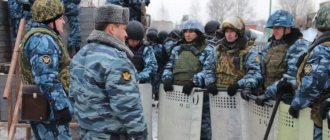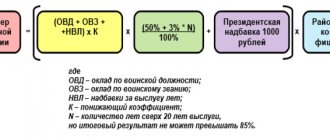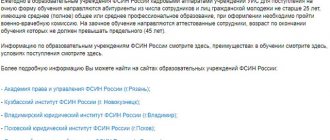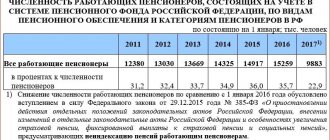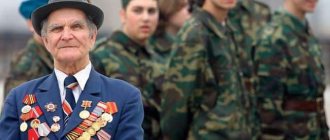- Specialists of the Pension Fund of the Russian Federation answer this question as follows: When a pensioner moves to another city within the Russian Federation, his pension file can be sent to the territorial body of the Pension Fund of the Russian Federation at his new place of residence. To do this, you will need to contact the territorial office of the Pension Fund of the Russian Federation at your new place of residence and write an application so that a request can be made to forward the pension file to this office. Along with the application, you must submit documents proving your identity and registration at your new place of residence. For citizens of the Russian Federation, pensions can be paid at the place of their actual residence, and in this case, the pensioner’s application is accepted in confirmation of the residence address. Then you can choose the pension delivery method that is most convenient.
How to arrange a pension payment in another locality
The application that the pensioner must write addressed to the head of the Pension Fund branch must contain the following data:
- Full name of the pensioner drawing up the application;
- Country, city, date, month, year of birth;
- Passport information, including registration information, as well as the name of the office that issued it;
- Insurance ID numbers must be indicated;
- Naturally, you will need a pensioner’s ID and all documents indicating that the citizen has received such status and a specific amount of pension payments;
- Contact information through which communication can be established with a citizen in the event of a specific need;
- The application must also indicate the name of the financial institution to which the pension is transferred. To do this, you must indicate your bank account number.
Will there be a salary increase for FSIN employees in 2020?
Special conditions of service for FSIN employees imply additional payments and salary supplements. Therefore, the salary of FSIN employees consists of the following types of payments (this is a complete list and it does not apply to all employees):
- Official salary
- Bonus for length of service (length of service)
- Salary for special rank
- Bonus for qualifying title
- Bonus for working with information constituting state secrets
- Allowance for special conditions of service
- Monthly bonus for conscientious performance of official duties
- Cash compensation for renting residential premises
- Allowance for performing tasks associated with risks to life and health in peacetime
- One-time social payment for the purchase or construction of residential premises
- Incentive payments for special achievements in service
- Financial assistance in the amount of one salary once a year when an employee goes on another vacation
The main payments that need to be monitored and on which all others depend is the salary, consisting of the official salary and the salary for a special rank. Almost all allowances and bonuses are calculated as a percentage of the employee’s official salary, for example, for night service (from 22:00 to 6:00) an additional payment of 20 percent of the official salary is awarded.
Important! For FSIN employees who serve in the regions of the Far North or areas equivalent to them, the salary is multiplied by the regional coefficient. More information about pensions, regional coefficients and the list of regions of the Far North can be found in this review.
In accordance with the 2019 Budget, the long-awaited indexation of wages for FSIN employees will occur in the same order as for military personnel, as well as employees of the Russian Guard, the Ministry of Internal Affairs and other law enforcement agencies of the Russian Federation.
However, unlike the increase last year, in 2020 the FSIN salaries will increase from October 1, 2020.
If you remember, in 2020, the salaries of the Federal Penitentiary Service were raised by 4% immediately from January 1. In 2020, it was decided to change this norm - perhaps this happened due to the pension reform, which requires additional funds from the budget.
There are also active discussions about increasing the length of service of FSIN employees.
The salary increase in 2020 is not the only one - as follows from the planned Budget for this three-year period, FSIN employees will face annual indexations. Here is the percentage planned for the FSIN salary increase:
In order to find out how much the salaries of FSIN employees will be increased in 2020, depending on the position held or the special rank assigned, you can use one of the tables below, which lists the new salaries that will be in effect from October 1.
| rank and file: | |
| private of the internal service | 5423,6 |
| junior command staff: | |
| junior sergeant of internal service | 6508,32 |
| internal service sergeant | 7050,68 |
| senior sergeant of internal service | 7593,04 |
| foreman of internal service | 8135,4 |
| warrant officer of the internal service | 8677,76 |
| senior warrant officer of internal service | 9220,12 |
| average command staff: | |
| junior lieutenant of internal service | 10304,84 |
| internal service lieutenant | 10847,2 |
| senior lieutenant of internal service | 11389,56 |
| internal service captain | 11931,92 |
| senior command staff: | |
| Major of the Internal Service | 12474,28 |
| Lieutenant Colonel of the Internal Service | 13016,64 |
| Colonel of the Internal Service | 14101,36 |
| senior management: | |
| Major General of Internal Service | 21694,4 |
| Lieutenant General of Internal Service | 23863,84 |
| Colonel General of the Internal Service | 27118 |
| Boss | 35795,76 |
| Deputy boss | 30372,16 |
| Head of department (as part of the main department) | 27118 |
| Deputy head of department (as part of the main department) | 26033,28 |
| Assistant Chief | 24948,56 |
| Department head | 23321,48 |
| Deputy head of department | 21694,4 |
| Head: departments, services, inspections | 21152,04 |
| Senior detective for particularly important cases | 20609,68 |
| Senior Inspector for Special Assignments | 20067,32 |
| Senior detective | 18982,6 |
| Senior Specialist | 18982,6 |
| Chief Inspector | 18982,6 |
| Senior operational duty officer | 18982,6 |
| Senior psychologist | 18982,6 |
| Senior Engineer | 18982,6 |
| Senior Legal Advisor | 18982,6 |
| Investigative Officer | 17897,88 |
| specialist | 17897,88 |
| inspector | 17897,88 |
| duty Officer | 17897,88 |
| psychologist | 17897,88 |
| engineer | 17897,88 |
| legal adviser | 17897,88 |
| Head of Department of the Federal Penitentiary Service | 32541,6 |
| Deputy head of the FSIN department | 27118 |
| Assistant Head of Department of the Federal Penitentiary Service | 22779,12 |
| Department head | 22236,76 |
| Deputy head of department | 20609,68 |
| Head: departments, services, inspections | 20067,32 |
| Senior detective for particularly important cases | 19524,96 |
| Senior Inspector for Special Assignments | 18982,6 |
| Senior detective | 17897,88 |
| Senior Specialist | 17897,88 |
| Chief Inspector | 17897,88 |
| Senior operational duty officer | 17897,88 |
| Senior psychologist | 17897,88 |
| Senior Engineer | 17897,88 |
| Senior Legal Advisor | 17897,88 |
| Investigative Officer | 16813,16 |
| specialist | 16813,16 |
| inspector | 16813,16 |
| duty Officer | 16813,16 |
| psychologist | 16813,16 |
| engineer | 16813,16 |
| legal adviser | 16813,16 |
| First level manager | 34711,04 |
| Second level manager | 33626,32 |
| Deputy first level chief | 29287,44 |
| Deputy second level chief | 28202,72 |
| Head of department (as part of a territorial body) | 26575,64 |
| Deputy head of department (as part of a territorial body) | 25490,92 |
| First level assistant manager | 24406,2 |
| Second level assistant chief | 23321,48 |
| Department head | 22779,12 |
| Deputy head of department | 21152,04 |
| Head: departments, services, inspections | 20609,68 |
| Senior detective for particularly important cases | 20067,32 |
| Senior Inspector for Special Assignments | 19524,96 |
| Senior detective | 18440,24 |
| Senior Specialist | 18440,24 |
| Chief Inspector | 18440,24 |
| Senior operational duty officer | 18440,24 |
| Senior psychologist | 18440,24 |
| Senior Engineer | 18440,24 |
| Senior Legal Advisor | 18440,24 |
| Investigative Officer | 17355,52 |
| specialist | 17355,52 |
| inspector | 17355,52 |
| duty Officer | 17355,52 |
| psychologist | 17355,52 |
| engineer | 17355,52 |
| legal adviser | 17355,52 |
READ MORE: Pension of an incapacitated disabled person of group 1
| Head of institution 1st category. | 29287,44 |
| Head of institution 2nd category. | 27118 |
| Head of institution 3 cat. | 26033,28 |
| Deputy Head of the institution 1st category. | 24948,56 |
| Deputy Head of the institution, category 2. | 23863,84 |
| Deputy Head of the institution, category 3. | 22779,12 |
| Department head | 20609,68 |
| Deputy Head of Department | 18982,6 |
| Head of department | 17897,88 |
| Squad leader | 16813,16 |
| Head of the guard | 16813,16 |
| senior operational duty officer | 16813,16 |
| senior detective | 16813,16 |
| senior social teacher | 16813,16 |
| senior social work specialist | 16813,16 |
| senior psychologist | 16813,16 |
| senior engineer | 16813,16 |
| senior inspector | 16813,16 |
| senior legal adviser | 16813,16 |
| Senior Lecturer | 16813,16 |
| senior medical specialist | 16813,16 |
| duty Officer | 16270,8 |
| detective | 16270,8 |
| social teacher | 16270,8 |
| social work specialist | 16270,8 |
| psychologist | 16270,8 |
| engineer | 16270,8 |
| inspector | 16270,8 |
| legal adviser | 16270,8 |
| teacher | 16270,8 |
| medical specialist | 16270,8 |
| Head of an institution with a staff of more than 200 people | 32541,6 |
| Head of an institution with a staff of 100 to 200 people | 31456,88 |
| Head of an institution with a staff of less than 100 people | 30372,16 |
| Deputy head of an institution with a staff of more than 200 people | 28202,72 |
| Deputy head of an institution with a staff of 100 to 200 people | 27118 |
| Deputy head of an institution with a staff of less than 100 people | 26033,28 |
| Assistant to the head of the institution | 23321,48 |
| Department head | 22236,76 |
| Deputy Head of Department | 20609,68 |
| Department Director | 19524,96 |
| Senior detective for particularly important cases | 18982,6 |
| Chief Specialist | 18440,24 |
| senior detective | 18440,24 |
| medical specialist | 18440,24 |
| Leading Specialist | 17897,88 |
| Senior detective | 17355,52 |
| Senior Specialist | 17355,52 |
| Chief Inspector | 17355,52 |
| Senior operational duty officer | 17355,52 |
| Senior psychologist | 17355,52 |
| Senior Engineer | 17355,52 |
| Senior Legal Advisor | 17355,52 |
| Investigative Officer | 16813,16 |
| specialist | 16813,16 |
| inspector | 16813,16 |
| duty Officer | 16813,16 |
| psychologist | 16813,16 |
| engineer | 16813,16 |
| legal adviser | 16813,16 |
Latest news and changes Since January 2020, the state began to pay a new type of pension to “foundling children” whose parents are unknown, which made it possible to equalize their rights to payments with children abandoned by their parents. Since January 1, pensions have been indexed by 3.7% for non-working pensioners and by 4% for military personnel.
Info
Since the beginning of the year, a new law on the indexation of pensions for dismissed pensioners has come into force. Now, after 3 months, during which the recalculation lasts, the Pension Fund will pay the indexed pension not from the 4th month, but from the first month after dismissal.
On February 1, social payments were indexed by 2.5% and additional payments to civil aviation flight personnel and coal industry workers increased.
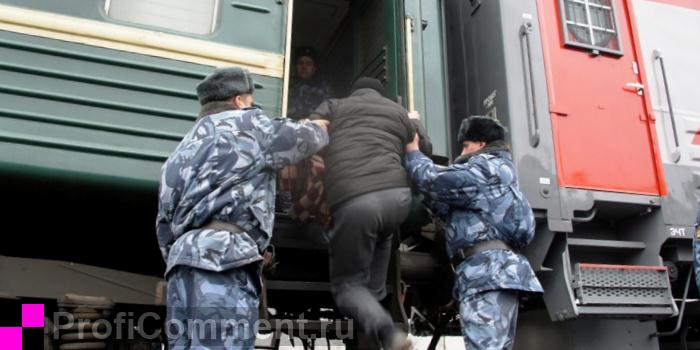
The Ministry of Justice is determined to tighten requirements for employees. The new law will stipulate:
- good treatment of prisoners;
- respect for the rights of those serving sentences;
- respect for the traditions of different peoples;
- rejection of corruption in all its forms.
Innovations also imply the abandonment of immoral habits and a ban on absenteeism. In addition, employees will be required to report any facts of corruption. Otherwise, they face dismissal. Every jailer is expected to enter into a mandatory employment contract. New employees will need to undergo a probationary period, which will range from 2 to 6 months.
Such an increase will affect all pensioners of this age with the exception of disabled people of group 1, whose pension is initially 2 times higher. Pensioners at such an advanced age are additionally entitled to a compensation payment to pay for the services of a person who would care for them, because often elderly people cannot care for themselves and they need the help of an outsider.
The amount of compensation is 1200 rubles. Additionally, regions provide their own benefits and social support measures. After the pensioner turns 80 years old, the pension will be automatically increased starting from the month following the month in which the birthday occurred.
The pensioner does not need to go anywhere for this; the Pension Fund will do everything itself. The pension fund independently calculates the pension after the pensioner reaches the age of 80.
- Long service bonus
- Bonus for qualifying title
- Bonus for working with information constituting state secrets
- Allowance for special conditions of service
- Monthly bonus for conscientious performance of official duties
- Allowance for performing tasks associated with risks to life and health in peacetime
- Incentive payments for special achievements in service
- One-time social payment for the purchase or construction of residential premises
- Cash compensation for renting residential premises
- Financial assistance in the amount of one salary once a year when an employee goes on another vacation
- The main payments that need to be monitored and on which all others depend is the salary, consisting of an official salary and a salary for a special rank.
The procedure for transferring a pension to a new place of residence
After the pensioner is registered in the new branch, payments will be made in accordance with the changed place of residence. To transfer material assets, the method specified by the pensioner during the application process will be used after submitting it to the territorial branch of the Pension Fund. You need to understand that the transfer of any pension file and, accordingly, the transfer of pension payments is considered the right of all categories of citizens. For this reason, the authorized body must carry out all the above actions only on the basis of an application received from the pensioner. Useful information For a pensioner, completing all the necessary documentation is not so simple. When moving to a new place of residence, before changing the place of receiving pension payments, it is recommended that the citizen register with the institutions of the Ministry of Internal Affairs.
Benefits for FSIN pensioners
In accordance with Federal Law No. 283-FZ of December 30, 2012, former employees of the Federal Penitentiary Service can enjoy the following benefits :
- purchasing a voucher for sanatorium treatment at a departmental organization in the amount of 25% of the cost of the voucher;
- receiving monetary compensation for actually paid amounts of land and property taxes;
- financial assistance in case of difficult life situations.
If FSIN pensioners served in areas with difficult climatic conditions (for example, in the Far North), then they are reimbursed for the costs of moving to their place of residence. The transportation of baggage weighing no more than 20 tons is also paid.
Payment of pension upon change of residence
- At least a month before this event, you need to send a notification to the local Pension Fund. Certain documents must be attached:
- Every year a document is submitted to the consulate, which confirms that the pensioner is alive.
If payments are scheduled from 2020, then the funds are transferred to a card issued by a Russian bank or through an authorized person in Russia specified by the applicant. When applying for pension benefits until 2020, funds can be received at your place of residence.
The procedure for applying for the appointment and payment of a pension
In order to apply for state pension provision for long service, citizens need to contact the pension authorities of the Federal Penitentiary Service. When making payment for insurance coverage - to the territorial body of the Pension Fund of Russia.
The pension authorities of the service consider the application with all documents within 10 days , since the assignment and payment of funds are under the jurisdiction of the Federal Penitentiary Service at the last place of work. If the decision is positive, security is established for the citizen from the day of dismissal from service.
In both cases, funds are paid monthly . The recipient can independently choose a convenient delivery method through:
The pensioner also has the right to change the delivery method by submitting a corresponding application to the territorial body of the Pension Fund.
The presence of civilian work, including entrepreneurial activity, does not affect pension provision for long service. However, if a pensioner gets a job in law enforcement agencies, then the payment of this pension is suspended .
Necessary documents for registration
To establish state security for length of service upon retirement, a citizen must submit the following documents to the pension authorities:
- relevant statement;
- passport;
- calculation of length of service, which must be prepared and agreed with the UPFR personnel department;
- monetary certificate;
- conclusion of the military medical commission (MMC);
- extract from the dismissal order, etc.
- insurance certificate (SNILS);
- a certificate from the Federal Penitentiary Service, which confirms that the citizen is a recipient of a pension through this law enforcement agency;
- other documents that confirm the applicant’s insurance experience (work book, employment contract, etc.).
To apply for an old-age insurance pension , former employees of the Federal Penitentiary Service must submit to the territorial body of the Pension Fund of the Russian Federation, in addition to the application and passport:
Pension department Ufsin Moscow application for moving to another city
For a new permanent residence, a person will need pension funds. In order for the Pension Fund of Russia body at the new place of residence to continue accruals to the citizen, it is necessary to complete a number of bureaucratic procedures. For such people, information is valuable on how to transfer a pension to another city in connection with a move and whether the size of the pension changes when moving to another region. Content
- 1 Is the amount of pension benefits maintained when moving?
- 2 Transfer of pension to another city (Moscow)
- 3 Pension for Russians going to live abroad
- 4 How to transfer your pension when changing your place of residence
- 5 How to receive a pension in another city
Is the amount of pension benefits the same when moving? The pension does not change when moving to another region.
- lack of a place of work;
- receiving maintenance in Moscow (without taking into account the type of security and the body paying it);
- registration at the place of residence in Moscow for 10 years or more (summing up all periods of residence is allowed).
- An additional payment up to the subsistence level in Moscow (in 2020 its amount is 11,561 rubles) is made to pensioners if a number of conditions are met:
- lack of a place of work;
- receiving content of any kind;
- availability of registration at the place of residence, if the duration of registration in the subject is less than 10 years or the absence of registration in Russia.
Northern pension when moving If they have work experience in regions with the status of the Far North, citizens have the right to increase their pension payments. For a pensioner, all types of mandatory payments and bonuses for overtime based on length of service, length of service, awards and insignia, special working conditions are retained (similar bonuses are awarded to miners, geologists, polar explorers, etc.). The amount of allowance in other regions of Russia will not change: the social and insurance parts of payments remain at the same level. Payments are not adjusted in those precedents if a person leaves those areas where the “northern coefficient” is used.
The payment to such a pensioner will be calculated based on the number of years lived in the northern area before departure. The pension period for residents of the North has lower thresholds than in other regions of Russia. If a pensioner moves to an area whose location falls under the “northern allowances”, then the monthly allowance increases in accordance with the size of the regional coefficient.
RESOLUTION of January 30, 2013 N 63 ON APPROVAL OF THE RULES FOR REIMBURSEMENT OF COSTS FOR TRAVEL AND CARRIAGE OF LUGGAGE TO THE SELECTED PLACE OF RESIDENCE FOR EMPLOYEES OF INSTITUTIONS AND BODIES OF THE CRIMINAL EXECUTIVE SYSTEM, FEDERAL FIRE SERVICE OF THE STATE NATIONAL FIRE SERVICE, AUTHORITIES FOR CONTROL OF NARCOTIC DRUGS AND PSYCHOTROPIC SUBSTANCES AND CUSTOMS AUTHORITIES OF THE RUSSIAN FEDERATION, PAYMENT OF MONETARY COMPENSATION EXPENSES FOR TRAVEL TO SANATORIUM AND RESORT ORGANIZATIONS FOR CITIZENS OF THE RUSSIAN FEDERATION DISMISSED FROM SERVICE IN THE SPECIFIED INSTITUTIONS AND BODIES, AND THEIR FAMILIES MEMBERS, AS WELL AS TRAVEL FOR FAMILIES AND PARENTS OF A DECEASED EMPLOYEE OF THESE INSTITUTIONS RECENTS AND ORGANS TO THE PLACE OF HIS BURIAL LOCATED OUTSIDE THE TERRITORY OF THE RUSSIAN FEDERATION 1.
This is interesting: How long is Sus in prison?
Calculation of the pension of a FSIN employee
In accordance with Article 14 of Law No. 4468-1, the amount of state pension provision for a FSIN employee for years of service, just like a military serviceman, depends on the amount of salary and the number of years of service. The longer the length of service, the higher the pension.
For 20 years of service or more, the payment is calculated as follows:
P = 50%DD + 3%DD × SV,
If a citizen has a total insurance record of at least 25 years and a length of service in the Federal Penitentiary Service of at least 12 and a half years, his coverage is calculated a little differently:
P = 50%DD + 1%DD × SV.
Since 2012, the amount of monetary allowance in calculations has been used with a reducing factor. According to Federal Law No. 430-FZ of December 19, 2020, in 2020 the value of this coefficient is 72.23% (same as 2017).
In addition, Article 17 of Law 4468-1 provides certain categories of citizens from former employees of the Federal Penitentiary Service with allowances for this provision . These are:
Increase (indexation) of pensions
Pensions for the length of service of a FSIN employee are equal to the provision of military personnel, so their increase depends on the annual increase in salary , which is used in calculating pension benefits.
As for insurance payments, they are subject to annual indexation to the level of inflation in the previous year. The planned increase occurs on February 1. A second indexation is also possible on April 1, if there are funds in the Pension Fund of the Russian Federation.
In 2020, pay will increase by 4% ; military pensions will also increase by the same percentage. Insurance pensions for military personnel who do not officially work either in law enforcement agencies or in civilian life have been increased by 3.7% since January 1.
Pension calculator for FSIN employees in 2020
Currently, there are many free programs on available Internet services that allow employees of the Federal Penitentiary Service to independently calculate the amount of their future security. These programs are called “Pension calculators”.
Using this calculator is easy .
However, it should be taken into account that the information obtained as a result of the calculation may not always be correct , since when assigning pension benefits, various nuances of service may be taken into account.
Addresses, telephone numbers, official websites
Federal Penitentiary Service (FSIN of Russia)
Department of the Federal Penitentiary Service for the Moscow Region
Criminal Executive Inspectorate Branch No. 15
Criminal-Executive Inspectorate No. 13, FKU branch
Department of the Federal Penitentiary Service for Moscow
Branch of the UI No. 8 FKU UI of the Federal Penitentiary Service of Russia in Moscow
Branch No. 17 FKU UII UFSIN of Russia in Moscow
Reception Federal Penitentiary Service for Russia
Criminal-Executive Inspectorate No. 23 FKU fil.
Criminal-Executive Inspectorate No. 14 FKU
Criminal Executive Inspectorate Branch No. 3
FKU UII FSIN of Russia in Moscow Branches 19
Criminal-Executive Inspectorate No. 12 FKU
Criminal-Executive Inspectorate No. 16 FKU
Branch No. 18 of the Federal Penitentiary Institution of the Federal Penitentiary Service of Russia in Moscow
Address: Moscow, Novoyasenevsky Prospekt, 25 Telephone: Opening hours: Mon-Thu 09:00-18:00; Fri 09:00-16:45 Website:
Department of Execution of Sentences of the Criminal Execution Inspectorate of the Federal Penitentiary Service of Russia in Moscow
Criminal Executive Inspectorate Branch No. 22
Criminal Executive Inspectorate Branch No. 1
Federal Treasury Institution Penal Inspectorate of the Office of the Federal Penitentiary Service for the City of Moscow
Federal Penitentiary Service for the Moscow Region
Directorate for Convoying of the Federal Penitentiary Service for Moscow
Department of the Federal Penitentiary Service for Moscow, Special Purpose Department Saturn
Enterprise Federal State Unitary Enterprise Center for Information Technology Support and Communications of the Federal Penitentiary Service
FSIN of Russia
Address: Moscow, st. Sadovaya-Sukharevskaya, 11 Phone:
Pension of FSIN employees
Employees of the Federal Penitentiary Service (FSIN) are persons working in the bodies and institutions of the penitentiary services in the constituent entities of the Russian Federation. This Federal Service also includes correctional institutions, inspection centers, and training centers.
In other words, FSIN employees are all citizens engaged in working with persons who have committed unlawful acts (prisoners):
- controllers for the execution of punishment;
- security guards;
- educators;
- social workers;
- psychologists, etc.
Since service in the Federal Penitentiary Service is equivalent to military service, if they have a certain length of service in a departmental organization, citizens have the right to a pension for long service . This type of payment is calculated in the same way as pensions for military personnel.
Since the labor activity of these citizens is related to working with convicts, they have certain benefits and advantages upon retirement. Also, pensioners of this service, under certain circumstances, can apply for two types of pension benefits. Since these types of pensions are financed from different sources , their establishment has its own nuances.
general information
Pension Department of the Federal Penitentiary Service of Russia in Moscow
Head of the department – Natalya Nikolaevna Sokolova,
Deputy Head of Department – Kanunnikova Evgenia Viktorovna,
Operating regulations of the Pension Department of the Federal Penitentiary Service of Russia in Moscow:
Reception of pensioners of the penal system on issues of social security, consideration of proposals, applications and complaints of citizens on issues of social security of former employees of the penal system and members of their families
lunch from 13.00 to 13.45
Reception of pensioners of the penal system on issues of social security, consideration of proposals, applications and complaints of citizens on issues of social security of former employees of the penal system and members of their families
lunch from 13.00 to 13.45
Brief historical background
Since January 1, 2001, pension provision for pensioners of the penal system is provided by the pension services of the territorial bodies of the Federal Penitentiary Service of Russia, at the place of residence of the pensioner.
The pension department of the Federal Penitentiary Service of Russia in Moscow is registered with pensioners of the penal system and members of their families who previously served in the divisions of the Federal Penitentiary Service of Russia in Moscow, divisions of the Federal Penitentiary Service of Russia in the Moscow region, structural divisions of the Federal Penitentiary Service of Russia living in Moscow and Moscow region, including pensioners of the penal system who arrived from other regions and CIS countries in connection with their move to permanent residence in Moscow and the Moscow region.
Dear pensioners, to quickly resolve your issues, please contact the employees supervising your pension case directly. The plots are distributed according to the first letter with which the pensioner’s last name begins:
Kanunnikova Evgenia Viktorovna, deputy head of department
Bayguzova Marina Nikolaevna, senior inspector
Nastyushkina Nailya Anvarovna, senior inspector
Golubeva Marina Nikolaevna, inspector
Khalgaeva Evgenia Aleksandrovna, inspector
In all cases of appeals to the Central Bank of Samara PJSC "Sberbank of Russia" regarding the timeliness and completeness of crediting pensions, you must be prepared to give your full name, the department paying the pension, its territorial affiliation and the number of the pension certificate.
The main regulations governing the activities of the pension department of the Federal Penitentiary Service of Russia in Moscow:
— DECISION OF THE GOVERNMENT OF THE city ON THE PROCEDURE FOR CALCULATING YEARS OF SERVICE, ASSIGNMENT AND PAYMENT OF PENSIONS, COMPENSATIONS AND BENEFITS TO PERSONS WHO PASSED MILITARY SERVICE AS OFFICERS, WARRANTS, MICHMANS AND EXTRA-TERM MILITARY PERSONNEL SERVICE OR CONTRACT AS SOLDIERS, SAILORS, SERGEANTS AND PETTER MARINES OR SERVICE IN BODIES OF INTERNAL AFFAIRS, STATE FIRE SERVICE, INSTITUTIONS AND BODIES OF THE CRIMINAL EXECUTIVE SYSTEM, AND THEIR FAMILIES IN THE RUSSIAN FEDERATION N 941 of September 22, 1993
—
ORDER ON APPROVAL OF THE INSTRUCTIONS ON THE ORGANIZATION OF WORK ON SOCIAL SECURITY OF EMPLOYEES AND THEIR FAMILIES IN THE CRIMINAL EXECUTIVE SYSTEM N
258 of December 30, 2005;
— FEDERAL LAW “ON SOCIAL GUARANTEES FOR EMPLOYEES OF SOME FEDERAL EXECUTIVE BODIES AND AMENDMENTS TO SOME LEGISLATIVE ACTS OF THE RUSSIAN FEDERATION” N 283-ФЗ dated December 30, 2012;
— FEDERAL LAW “ON VETERANS” No. 5-FZ of January 12, 1995
;
— GOVERNMENT DECISION “ON THE STANDARDS OF EXPENDITURE OF MONEY FOR THE BURNERS OF KILLED (DIED) MILITARY SERVICEMEN, EMPLOYEES OF MINISTRY AFFAIRS BODIES, INSTITUTIONS AND BODIES OF THE CRIMINAL EXECUTIVE SYSTEM, STATE FIRE SERVICE ZhB, BODIES FOR TRANSPORT OF NARCOTIC DRUGS AND PSYCHOTROPIC SUBSTANCES…. AS WELL AS FOR THE MANUFACTURE AND INSTALLATION OF GRAVE MONUMENTS " No. 460 dated May 06, 1994.
— FEDERAL LAW “ON SERVICE IN THE CRIMINAL SYSTEM OF THE RUSSIAN FEDERATION AND ON AMENDING THE LAW OF THE RUSSIAN FEDERATION “ON INSTITUTIONS AND BODIES EXECUTING CRIMINAL PUNISHMENTS IN THE FORM OF IMPRISONMENT” No. 197-F Z dated 07/19/2018
This is interesting: What does a cobweb on a shoulder mean in prison?
What pensions can employees receive?
Pension provision for employees of the Federal Penitentiary Service, as well as military personnel, is regulated by Law of the Russian Federation No. 4468-1 of February 12, 1993 (hereinafter referred to as Law No. 4468-1). In accordance with this law, a pension can be established for this category of workers through law enforcement agencies (financed from the state budget):
In the event of the death of employees of the Federal Penitentiary Service, their relatives, according to the legislation of the Russian Federation, can apply for state payments in the event of the loss of a breadwinner .
In addition, if after serving in the Federal Penitentiary Service a citizen officially carried out labor activities and compulsory pension insurance contributions were paid for him, then upon reaching retirement age he has the right to apply for an old-age insurance pension.
Long service pensions for FSIN employees
According to the legislation of the Russian Federation, long-service pensions are established and paid by the relevant law enforcement agency, in this case, the Federal Penitentiary Service. An employee of the Federal Penitentiary Service has the right to apply for the establishment of this pension if he has a total length of service of at least 20 years .
At the same time, a citizen can apply for the establishment of a payment without having 20 years of work experience in the Federal Penitentiary Service, if he simultaneously meets several conditions :
The period of work in the Federal Penitentiary Service is counted towards length of service on preferential terms - one year is equal to one and a half years. If the place of work is a special correctional institution (containment of infected prisoners, persons with life sentences, etc.), then one year of service is equal to two years of service.
Also, in accordance with Decree of the Government of the Russian Federation No. 941 of September 22, 1993, the following periods are counted :
It is worth noting that only personnel . Employees carrying out labor activities under civil contracts are not employees of the Federal Penitentiary Service and, accordingly, cannot apply for a state long-service pension.
Purpose of pension insurance
Many citizens, after retirement from the Federal Penitentiary Service, continue to work, but as “civilian” workers. According to Russian legislation, their employers make monetary contributions to the compulsory pension insurance system. This is how former employees of the law enforcement department receive insurance coverage .
A citizen can apply for the appointment of this security only if certain conditions , established by Article 8 of Federal Law No. 400-FZ of December 28, 2013. In this regard, a pensioner of the Federal Penitentiary Service can apply for a second (insurance) payment in 2018 if he:
Since the pension is assigned on a general basis, the minimum number of years of insurance experience and pension points will increase annually in accordance with the transitional provisions. Unlike a long-service pension, old-age insurance is established and paid by the Russian Pension Fund .
Posts 1 page 20 of 31
Share111.05.2017 15:23:32
- Author: Uznik
- All about the Federal Penitentiary Service of Russia
- Registered: 12/12/2016
- Invitations: 0
- Posts: 3712
- Respect: [+3/-0]
- Positive: [+0/-0]
- Time spent on the forum: 7 days 14 hours
- Last visit: 02/28/2019 06:59:37
Federal Penitentiary Service of Russia in Moscow:
Email addresses for sending requests and receiving requested information from the Federal Penitentiary Service Moscow: - for individuals: Internet reception - for legal entities - internal security department
Share211.05.2017 15:25:05
- Author: Uznik
- All about the Federal Penitentiary Service of Russia
- Registered: 12/12/2016
- Invitations: 0
- Posts: 3712
- Respect: [+3/-0]
- Positive: [+0/-0]
- Time spent on the forum: 7 days 14 hours
- Last visit: 02/28/2019 06:59:37
Head of the Federal Penitentiary Service for Moscow, Colonel of Internal Service Sergey Anatolyevich Moroz Born on September 15, 1968 in Berdyansk, Zaporozhye region of Ukraine. Education: 1989 – Engels Higher Anti-Aircraft Missile Command School of Air Defense; 2008 – Bashkir State University (specialty – jurisprudence). Until 1995 he served in the Armed Forces. Since 1996 - in the penal system. From 2008 to 2020, he headed the Federal Penitentiary Service of Russia in the Bryansk region. On October 31, 2020, by Decree of the President of the Russian Federation No. 578, he was appointed head of the Federal Penitentiary Service of Russia for Moscow.
Share311.05.2017 15:26:09
- Author: Uznik
- All about the Federal Penitentiary Service of Russia
- Registered: 12/12/2016
- Invitations: 0
- Posts: 3712
- Respect: [+3/-0]
- Positive: [+0/-0]
- Time spent on the forum: 7 days 14 hours
- Last visit: 02/28/2019 06:59:37
MANAGEMENT OF THE FSIN OF RUSSIA FOR MOSCOW
Colonel of the Internal Service Maxim Nikolaevich Zalesov Coordinates and controls the activities of the following structural units of the Federal Penitentiary Service of Russia in Moscow: - Department of Pretrial Detention Facilities; — Special Accounting Department; — Inspections of departmental fire protection; - Special Purpose Department.
Colonel of the Internal Service Nalgachev Gennady Arkadyevich Coordinates and controls the activities of the following structural units of the Federal Penitentiary Service of Russia in Moscow: - Department of Personnel and Work with Personnel; — Psychological service; — Personnel and Anti-Corruption Inspections; — Groups of educational work with convicts.
Lieutenant Colonel of the Internal Service Maxim Yuryevich Popov Coordinates and controls the activities of the following structural divisions of the Federal Penitentiary Service of Russia in Moscow: - Department of Security Service Organization; — Groups for organizing actions in the event of an emergency situation; - Dog service.
Colonel of the Internal Service Ulyanov Evgeniy Alekseevich Coordinates and controls the activities of the following structural units of the Federal Penitentiary Service of Russia in Moscow: - Logistics Support Department; — Department of Capital Construction and Repair; — Pension Department; — Financial and economic group; — Transport, chief mechanic and power engineering groups; — Environmental and safety inspections.
Share411.05.2017 15:30:11
- Author: Uznik
- All about the Federal Penitentiary Service of Russia
- Registered: 12/12/2016
- Invitations: 0
- Posts: 3712
- Respect: [+3/-0]
- Positive: [+0/-0]
- Time spent on the forum: 7 days 14 hours
- Last visit: 02/28/2019 06:59:37
HISTORY OF THE FSIN OF RUSSIA IN MOSCOW
1939 The prison department of the USSR Ministry of Internal Affairs for the city of Moscow and the Moscow region was created. Colonel N.A. Gaponov was appointed head of the prison department. The department consists of three departments: operational work, regime and security, and economic work. The department also includes a medical inspector.
1956 The prison department of the Ministry of Internal Affairs of the city of Moscow and the Moscow region was reorganized into two departments: for the city of Moscow and for the Moscow region. The Moscow department is headed by N.A. Gladkikh. The department includes Taganskaya Prison and Prison No. 1 (“Matrosskaya Tishina”).
1960 The transit and transfer department was transferred to the Moscow Department of Internal Affairs, which became known as Pre-trial Detention Center No. 3 of Moscow. During this period, the prison departments of Moscow and the Moscow region were part of the structure of the State Institution of Internal Affairs of the USSR Ministry of Internal Affairs.
60s The prison department of the Ministry of Internal Affairs in Moscow is located at the address: st. Petrovka, 38, building “B”. The department is headed by N.A. Korneev.
70s The Department of Pre-trial Detention Centers and LTP of the Moscow City Internal Affairs Directorate was created. The department is headed by Colonel G.N. Dubov. The structure of the department includes pre-trial detention centers No. 1, 2, 3 and LTP No. 1.
In the 1980s, the Government and the Supreme Soviet of the USSR adopted a number of decrees and resolutions aimed at strengthening the fight against drunkenness and alcoholism among citizens. For the treatment and labor education of the population in Moscow, medical treatment facility No. 3 was introduced in 1985, medical treatment facility No. 4 in 1986, and medical treatment facility No. 5 in 1987.
1994 By order of the head of the GUIN of the Ministry of Internal Affairs of the Russian Federation, Kalinin Yu.I. The Department for the Execution of Punishments of the Central Internal Affairs Directorate for Moscow was created.
September 1998 The Penitentiary Penitentiary of the Central Internal Affairs Directorate for Moscow was transferred to the jurisdiction of the Ministry of Justice of Russia.
April 2005 The Penitentiary Indicator of the Ministry of Justice of Russia for Moscow was transferred to the jurisdiction of the Federal Penitentiary Service of Russia.
Currently, the Directorate of the Federal Penitentiary Service for the City of Moscow (UFSIN of Russia for the City of Moscow) structurally includes: - a management apparatus, within the structure of which there is a special purpose department; — 7 pre-trial detention centers; — Convoy Department; — Criminal Enforcement Inspectorate with 27 branches; — Security Department of the State Scientific Center named after. V.P. Serbian.; — Center for Engineering, Technical Support and Weapons; — Medical and sanitary unit; — Logistics and military supply base.
The main tasks (goals) of the Department are: 1) Organization of the execution of criminal penalties, measures of a criminal legal nature, as well as the maintenance of persons in custody. 2) Ensuring law and order in institutions executing punishments and pre-trial detention centers, the safety of convicts, persons in custody, officials and other citizens located on the territory of these institutions. 3) Security and escort of convicted persons and persons in custody along established escort routes, incl. to the countries of the Commonwealth of Independent States and foreign countries, escorting citizens of the Russian Federation and stateless persons to the territory of the Russian Federation, as well as foreign citizens and stateless persons in the event of their extradition.
This is interesting: Udo from the colony settlement
Ensuring the safety and security of penal system facilities. 4) Ensuring regime in penal institutions and pre-trial detention centers, isolation of convicts and constant supervision over them, creation of appropriate conditions for serving sentences for convicts, keeping persons in custody, in accordance with the norms of international law, the provisions of international treaties of the Russian Federation and federal laws.
Protecting their health, including organizing the receipt of medical care, health care and consumer services, sanitary and epidemiological surveillance, medical examination and medical and social examination.

Creation and provision of safe working conditions for employees (workers) of the penal system, in accordance with the requirements of the legislation of the Russian Federation, other regulatory legal acts in the field of labor protection and environmental safety. 11) Selection and placement of personnel of the Department, management staff of penal institutions, pre-trial detention centers and other subordinate institutions, organization of professional training and advanced training of employees (workers).
Comments (24)
This year I retired, I get paid for long service, since I worked as a security guard in a settlement colony for almost 30 years. I heard that pensioners of law enforcement agencies can receive two types of pensions. How can I make a second payment?
In addition to the state pension for long service, former employees of law enforcement agencies, including the Federal Penitentiary Service, can apply for old-age insurance benefits on a general basis. That is, you have the right to apply for a second pension through the Pension Fund only if you:
If you have work experience in civilian life, which implies early retirement (for example, work in difficult climatic conditions), then you can apply for an appointment earlier than the generally established age.
There are no guards in settlement colonies. So #nip*dite
Hello. I am 41 years old, I receive a pension through the UIS. They have 10 years of civil service experience. Am I entitled to an insurance pension?
Last year I retired because I was an employee of the Federal Penitentiary Service. I am currently receiving a long service pension. I'm thinking about returning to my previous job. If I work again, will they pay me my pension?
Unfortunately, long-service pensions are established only for those citizens who do not work in law enforcement agencies. If you return to your previous place of work, payment of this security will be suspended for the entire period of employment.
At the same time, you can get a job in a “civilian” position. In this case, you will retain your long-service pension, and old-age insurance will also be provided.
Is a FSIN employee entitled to leave upon retirement?
Hello, I am receiving a long-service pension, I am currently getting a job in the state civil service, will I lose my Ufsi pension?
Hello, can you please tell me? Does studying at two universities, but not more than 5 years, count towards length of service when assigning a pension?
I haven’t received a one-time payment of 5,000 rubles, where can I look for it?
Hello. Can anyone tell me how the Ukrainian work experience in the penal system in the Republic of Crimea is calculated after transferring to the Russian Federation to the Federal Penitentiary Service? Or in what law can this information be found?
Hello! I have been a pensioner of the Federal Penitentiary Service since 2008; before entering the service, my civilian experience was 21 years in other organizations. Upon reaching 60 years old, I will receive a second pension, but they say that no more than 3 thousand. This is true? I continue to work, and now my total civilian experience is 27 years.
Hello! I’m getting ready to retire based on length of service, I served in the Federal Penitentiary Service in Yakutsk for 19 years, and in 2020 I transferred to Novosibirsk. Does the regional coefficient of 1.4 remain the same when leaving Novosibirsk? Thank you in advance!
Hello! I have been a pensioner of the Federal Penitentiary Service since 2008; before entering the service, my civilian experience was 21 years in other organizations. When I reach 60, I will receive a second pension. I continue to work, and now my total civilian experience is 27 years. When applying for a pension, civil service experience was not taken into account. I served in the LIU, where the length of service lasted for two years. Question: approximately how much will my second pension be?
Hello. I am a disability pensioner of group 2 since 1998. The disease was acquired during military service in the regions of the Far North (Ust-Kut). I applied to the Pension Department of Irkutsk for financial assistance for health reasons and every year they send me only 1000 rubles. I provided all the certificates and documents for treatment, which costs me more than 10,000 thousand rubles for 1 treatment. Tickets sent for treatment to a hospital do not pay for and do not compensate for the amount of money spent on travel and treatment. Tell me, what payment am I entitled to? Thank you.
Hello. I am a disabled person of group 2 of the Federal Migration Service of the Federal Penitentiary Service in the Irkutsk region, the disease was acquired during military service. Please tell me what additional payment I am entitled to for a minor child? I don't work.
4 months ago, pensions were calculated according to Decree of the Government of the Russian Federation No. 941 of September 22, 1993, where full-time, part-time and part-time education before service was counted as length of service. At the moment, the pension is calculated in accordance with the resolution of the RF Armed Forces on December 23, 1992. 4202-1 on approval of the regulations on service in the Department of Internal Affairs of the Russian Federation, where, according to Art. 63 only full-time training is prescribed. There are no explanations for this fact from the FSIN department. How to deal with this?
Now I have the same situation - they do not count correspondence studies at a university before entering the service, citing Art. 63 Regulations on service in the Department of Internal Affairs. Everyone used to count, but now they don’t. Why?
I am a pensioner of the Main Directorate of the Federal Penitentiary Service for the Irkutsk region, attached to the Federal Medical Institution of the Ministry of Internal Affairs of Russia in the Irkutsk region. We were put on a waiting list for hospitalization by a neurologist 2 months in advance on 11/22/17. When I arrived, they refused me - they explained that there was no one to pay for my stay in the hospital, I had a compulsory medical insurance policy. Please explain how to continue, how to continue to live?
Hello! Please tell me, if you know, decree 4668-1 says that Art. 13, changes were made to increase the percentage of the long service bonus, the decree will come into force on January 1, 2018, FSIN military pensioners received their January pension in December 2020 with the old data for long service. Will there be a recalculation of pensions from February 2020 due to an increase in the percentage of the long-service bonus? I would appreciate your answer.
Not a word is said about receiving a free plot of land - this is the main benefit.
Has the pension supplement for 32% of FSIN employees who are combat veterans been preserved?
I have less than 13 calendar years of service in the Yakutsk Federal Penitentiary Service. In addition, civilian experience before and after service. He left Yakutsk due to forced circumstances - a serious illness and the death of his mother. Now I live in the Volga region. How should I proceed?
I have been serving in the Federal Penitentiary Service from 1996 to the present. From February 1995 to March 1996 she worked in the Internal Affairs Directorate in a civilian position. Tell me, will ATC experience be included in the length of service when calculating a pension?
pensionology.ru
FSIN salary increase in 2020 in Russia: latest news
- medical units,
- penal inspections for monitoring probationers,
- educational organizations.
As of the beginning of 2020, the FSIN penitentiary system has jurisdiction over more than 1 million citizens, of whom:
- More than 600 thousand are in prison;
- Almost 500 thousand are registered with the Criminal Executive Inspectorates.
Table 1. Citizens serving sentences in places of deprivation of liberty as of January 1, 2020 Institution Number of institutions Number of persons serving sentences Educational colonies for minors 23 1,405 Prisons 8 1,436 Pre-trial detention centers and premises at colonies 217 98 106 148 Penal colonies for life-sentenced prisoners 6 2,016 colony settlements 125 35,197 Penal colony 713,498,905 Salaries of FSIN employees in 2020 As is known, the service of employees of the penal system is both dangerous and difficult.
| rank and file: | |
| private of the internal service | 5200 |
| junior command staff: | |
| junior sergeant of internal service | 6240 |
| internal service sergeant | 6760 |
| senior sergeant of internal service | 7280 |
| foreman of internal service | 7800 |
| warrant officer of the internal service | 8320 |
| senior warrant officer of internal service | 8840 |
| average command staff: | |
| junior lieutenant of internal service | 9880 |
| internal service lieutenant | 10400 |
| senior lieutenant of internal service | 10920 |
| internal service captain | 11440 |
| senior command staff: | |
| Major of the Internal Service | 11960 |
| Lieutenant Colonel of the Internal Service | 12480 |
| Colonel of the Internal Service | 13520 |
| senior management: | |
| Major General of Internal Service | 20800 |
| Lieutenant General of Internal Service | 22880 |
| Colonel General of the Internal Service | 26000 |
| Boss | 34320 |
| Deputy boss | 29120 |
| Head of department (as part of the main department) | 26000 |
| Deputy head of department (as part of the main department) | 24960 |
| Assistant Chief | 23920 |
| Department head | 22360 |
| Deputy head of department | 20800 |
| Head: departments, services, inspections | 20280 |
| Senior detective for particularly important cases | 19760 |
| Senior Inspector for Special Assignments | 19240 |
| Senior detective | 18200 |
| Senior Specialist | 18200 |
| Chief Inspector | 18200 |
| Senior operational duty officer | 18200 |
| Senior psychologist | 18200 |
| Senior Engineer | 18200 |
| Senior Legal Advisor | 18200 |
| Investigative Officer | 17160 |
| specialist | 17160 |
| inspector | 17160 |
| duty Officer | 17160 |
| psychologist | 17160 |
| engineer | 17160 |
| legal adviser | 17160 |
| First level manager | 33280 |
| Second level manager | 32240 |
| Deputy first level chief | 28080 |
| Deputy second level chief | 27040 |
| Head of department (as part of a territorial body) | 25480 |
| Deputy head of department (as part of a territorial body) | 24440 |
| First level assistant manager | 23400 |
| Second level assistant chief | 22360 |
| Department head | 21840 |
| Deputy head of department | 20280 |
| Head: departments, services, inspections | 19760 |
| Senior detective for particularly important cases | 19240 |
| Senior Inspector for Special Assignments | 18720 |
| Senior detective | 17680 |
| Senior Specialist | 17680 |
| Chief Inspector | 17680 |
| Senior operational duty officer | 17680 |
| Senior psychologist | 17680 |
| Senior Engineer | 17680 |
| Senior Legal Advisor | 17680 |
| Investigative Officer | 16640 |
| specialist | 16640 |
| inspector | 16640 |
| duty Officer | 16640 |
| psychologist | 16640 |
| engineer | 16640 |
| legal adviser | 16640 |
| Head of Department of the Federal Penitentiary Service | 31200 |
| Deputy head of the FSIN department | 26000 |
| Assistant Head of Department of the Federal Penitentiary Service | 21840 |
| Department head | 21320 |
| Deputy head of department | 19760 |
| Head: departments, services, inspections | 19240 |
| Senior detective for particularly important cases | 18720 |
| Senior Inspector for Special Assignments | 18200 |
| Senior detective | 17160 |
| Senior Specialist | 17160 |
| Chief Inspector | 17160 |
| Senior operational duty officer | 17160 |
| Senior psychologist | 17160 |
| Senior Engineer | 17160 |
| Senior Legal Advisor | 17160 |
| Investigative Officer | 16120 |
| specialist | 16120 |
| inspector | 16120 |
| duty Officer | 16120 |
| psychologist | 16120 |
| engineer | 16120 |
| legal adviser | 16120 |
| Head of an institution with a staff of more than 200 people | 31200 |
| Head of an institution with a staff of 100 to 200 people | 30160 |
| Head of an institution with a staff of less than 100 people | 29120 |
| Deputy head of an institution with a staff of more than 200 people | 27040 |
| Deputy head of an institution with a staff of 100 to 200 people | 26000 |
| Deputy head of an institution with a staff of less than 100 people | 24960 |
| Assistant to the head of the institution | 22360 |
| Department head | 21320 |
| Deputy Head of Department | 19760 |
| Department Director | 18720 |
| Senior detective for particularly important cases | 18200 |
| Chief Specialist | 17680 |
| senior detective | 17680 |
| medical specialist | 17680 |
| Leading Specialist | 17160 |
| Senior detective | 16640 |
| Senior Specialist | 16640 |
| Chief Inspector | 16640 |
| Senior operational duty officer | 16640 |
| Senior psychologist | 16640 |
| Senior Engineer | 16640 |
| Senior Legal Advisor | 16640 |
| Investigative Officer | 16120 |
| specialist | 16120 |
| inspector | 16120 |
| duty Officer | 16120 |
| psychologist | 16120 |
| engineer | 16120 |
| legal adviser | 16120 |
| Head of institution 1st category. | 28080 |
| Head of institution 2nd category. | 26000 |
| Head of institution 3 cat. | 24960 |
| Deputy Head of the institution 1st category. | 23920 |
| Deputy Head of the institution, category 2. | 22880 |
| Deputy Head of the institution, category 3. | 21840 |
| Department head | 19760 |
| Deputy Head of Department | 18200 |
| Head of department | 17160 |
| Squad leader | 16120 |
| Head of the guard | 16120 |
| senior operational duty officer | 16120 |
| senior detective | 16120 |
| senior social teacher | 16120 |
| senior social work specialist | 16120 |
| senior psychologist | 16120 |
| senior engineer | 16120 |
| senior inspector | 16120 |
| senior legal adviser | 16120 |
| Senior Lecturer | 16120 |
| senior medical specialist | 16120 |
| duty Officer | 15600 |
| detective | 15600 |
| social teacher | 15600 |
| social work specialist | 15600 |
| psychologist | 15600 |
| engineer | 15600 |
| inspector | 15600 |
| legal adviser | 15600 |
| teacher | 15600 |
| medical specialist | 15600 |
Will pensions be increased for all pensioners who worked in the Federal Penitentiary Service?
The current salary increase is not the only one - in accordance with the planned Budget for 2020 and 2020, there will be 2 more indexations. In total, the Federal Budget for these purposes is planned for the FSIN:
- 2018 — 4.4 billion rubles.
- 2019 — 5.6 billion rubles.
- 2020 — 10.4 billion rubles.
As for the rest of the population, the conditions here are similar. For those employees who, having received a pension benefit, continue to work, payments will not be indexed. This is due to the physical impossibility of the state budget to withstand such a burden for all pensioners. The fact is that the total number of persons dependent on the state significantly exceeds the number of able-bodied people, so indexing benefits for all pensioners is not possible.
Considering that workers who continue to work are provided with wages in addition to social benefits, their overall material level is much higher than those who are no longer able to work. Government agencies must, first of all, take care of the least protected citizens, which is why payments only for such people are subject to indexation.
READ MORE: Increasing pensions for working pensioners in 2018
Considering that, thanks to the impressive level of wages, the size of the pension provision is quite large, work in this structure is very worthy and allows you to achieve a high level of material well-being. In addition, the ability to complete your work activity ahead of schedule is important.

